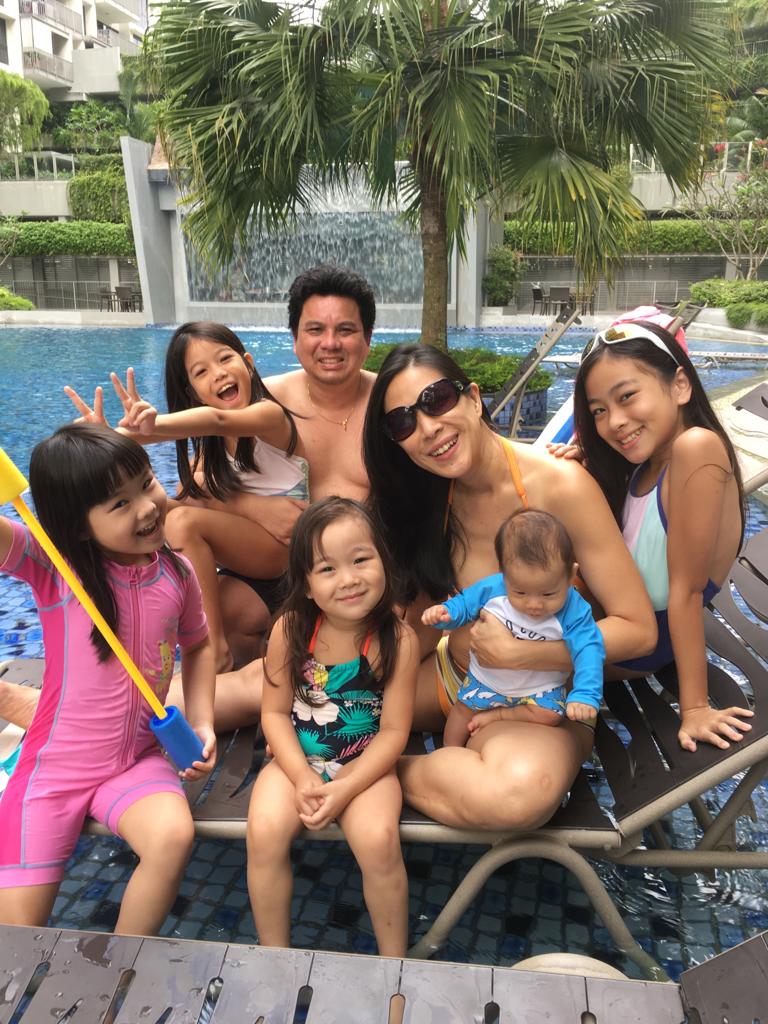SingaporeMotherhood | Parenting
September 2020
“My Child Wants to Commit Suicide. What Can I Do?”

A few weeks ago, a mum asked me: “Junia, my Primary Six-year-old son says he wants to commit suicide. What can I do?”
I teared up.
COVID-19 has isolated us not just physically, but emotionally and mentally as well. Especially for students who are taking their major exams — PSLE, as well as O and A Levels, home-based learning has no precedents and is causing a lot of stress in many families.
And understandably so.
“Junia, school is in my living room now! And I have to put aside my work to help my son,” laments one mum. Another mother rolls her eyes, shaking her head. “And the teacher wants homework to be passed up by 2pm — how to? I have three kids and only one laptop!”
Home-based learning meant teachers, parents, and students had to learn a new system and still cover the same syllabus. To make matters worse, parents working from home are expected to help their child with the new system while doing their own work. No wonder there is an increase of tempers flaring as stress rears its ugly head with the impact of the virus. We explode when we do not intend to or feel down for prolonged periods. Why?
(See also: HBL Tips and Tools – Safeguard Your Kids Online and Enhance Their Home-based Learning)
Let’s Talk about Space

Time Space – Parents used to get respite in the office where they had adult interaction and time away from their children. I’m sure children enjoyed their freedom away from parents too. The circuit breaker lockdown in tiny Singapore apartments meant the entire family saw one another daily 24/7 for two whole months.
Physical Space – As the old adage goes, absence makes the heart grow fonder. So work, play, rest, recreation, meals… all done in the same confines can be claustrophobic. This is especially true for those who love going out. Cabin fever was real.
Mental Space – With so many sudden changes to handle, our human mind which seeks security in routine finds it rudely snatched away! How to make sense of it and how to cope, with so many changes beyond our control? It’s not surprising that more are struggling with mental health issues — children too.
Emotional Space – How do we release all this stress? I want to shout, yet raising my voice even slightly impacts everyone around me. I am worried about my studies. Whom can I share with without negative backlash? Is there a refuge to escape from all these difficult emotions? These are the inner cries of many parents and kids that go unheard.
(See also: Depression in Children: Spot the Signs and Seek Help Now)
Four Problems, One Word: Boundaries
Now that we know what the issues are, what can we mums do about it? It comes down to setting — or re-setting — boundaries.

Plan Schedules
Time was better defined by activities like the kids going to school for six or seven hours, with parents starting their work day at the same time. Why should that change with working from home or home-based learning? Set a schedule and keep to it.
For me, 8am to 12 noon and 2pm to 4pm are my working times, where I clearly communicate that I am not to be disturbed. I encourage the kids to plan what they intend to do and stick to the routines they create themselves. Plus, consistency is key. In the beginning, they tried to distract me from my work, but I ignored them. After a period of not budging the immoveable mum, they now leave me alone.
The other key point is to set expectations. I ensure the kids know that I will avail myself during family meal-times and in the evenings. This results in them not interrupting me when I’m working because of the certainty that I will spend time with them at set times. Of course, I make sure I always follow through.
(See also: 5 Smart Things Mums Do On Sundays)
Respect Spaces
Boundaries are also applied to physical spaces. Instead of working from my bedroom, I sit myself at the study table — my home work station. I have trained the kids to understand that whenever I am in the study facing my laptop or on the phone, mum’s working. She will not entertain them, unless of course there’s an emergency (which thankfully hasn’t occurred so far).
When I close the study room door, that’s a further cue to be quieter because I am either concentrating or need silence.
Similarly, each of the kids has devised their own regular spaces they go to play and work too, which I, in turn, respect.
(See also: Why You Need to Let Your Child Be Bored)
Train Your Mind
Mentally, I train myself to look on the positive side of things.
You may not be able to do anything about the circumstances around you, but you can certainly change how you look at it.
It’s cliché, I know, but as creatures of habit, human beings can consciously train our minds to unconsciously find either the dark cloud or silver lining in every situation. And I know it works, because I never used to be this positive. Over time, I have consciously trained myself to look for the good in every circumstance. I use these two words: “That’s good”.
When the teacher called to tell me my daughter poured water on her classmate’s chair, for instance. I told myself “that’s good…” and proceeded to look for the good in what could have been embarrassing. What I found? Well, the perfect opportunity to peek into my daughter’s mind! She so reminds me of how mischievous I used to be.
I love it when kids do something out of the norm because I get a glimpse of their unique personality. What’s her strength? That she loves to play? This can be an opportunity to guide her playfulness into creativity that she develops more of in her life.
(See also: Accountability: Teach your Child the Most Important Value of all)

Support Yourself
Emotionally, I schedule things that make me happy. I’m a morning person, so I set aside morning hours to do what I enjoy. These include online courses for personal development before my family wakes up. I jog three times a week because I get to enjoy the side effect of endorphins (happy hormones) by the time I reach home.
Naturally, everyone has different interests and things that makes them happy. My experience with mums is that all too often, they lose sight of what those are. Especially if they have more than two kids. Mums get so caught up with the kids that we tend to forget that we are primarily a woman before becoming a wife and then a mother.
I used to expect my partner to make me happy. Now I understand that the person responsible for my happiness is not my spouse. It’s not my well-behaved kids or the excellent grades that they bring home. Conversely, my unhappiness is not due to a misfortunate circumstance, or a noisy neighbour. It is my unmet expectations. My undelivered communications. My negative thoughts. It is me. Which is great because now, I get to choose whether I’m happy or unhappy. Just with own my thoughts, words, and actions.
(See also: Parental Stress, Anxiety, and Burnout: are they happening to you?)
Mums, Reclaim Your Space and Your Kids Will Find Theirs
Try this exercise: take time to list at least 10 things that make you smile — besides your kids! It can be as simple as a cup of Nespresso, catching up with a friend, or listening to uplifting music. The longer the list, the better, because you’ll have more options to choose from to perk yourself up.

Yes, COVID-19 has brought changes. But as we make the choice to reclaim the spaces that we own, taking charge of our lives, it is an opportunity for us to take stock of what truly matters. Yes, perhaps I lost money in the stock market crash. But I thank God I have the chance to earn it back. Yes, my husband may have suffered income loss. Still, we have encouraging words for each other. Yes, the kids are squabbling up a storm at home. Yet they remind me of how I used to be. Simple. Authentic. Happy.
No parent wants to learn that their child is unhappy or worse, thinking about suicide. But while children may not always listen to what we say, they constantly learn from what we do. So set those boundaries, find your happiness, and show them — not just tell them — how to find theirs.
To learn more about how to reclaim your space, join Junia and 40 influential thought-leaders online at the first-ever Mums’ Space Summit this 12 to 16 October. They will be delving into five topics: Self, Spouse, Kids, Health, and Wealth. Attendance is free and those tuning in live can have your questions answered by the experts, and stand to win prizes at the end of each segment. Registering here also allows you to replay the sessions at your leisure.
 | Author of “The Naked Parent”, founder of Mum Space, and mother to five amazing children, Junia is a respected thought-leader in the parenting space. Recognised for empowering parents and kids with her 21st-century parenting model for over a decade, she now brings her ‘Modern Asian Mother’ expertise and experience to this exclusive SingaporeMotherhood column. |
Featured image: Pexels
All content from this article, including images, cannot be reproduced without credits or written permission from SingaporeMotherhood.
Follow us on Facebook, Instagram, and Telegram for the latest article and promotion updates.





